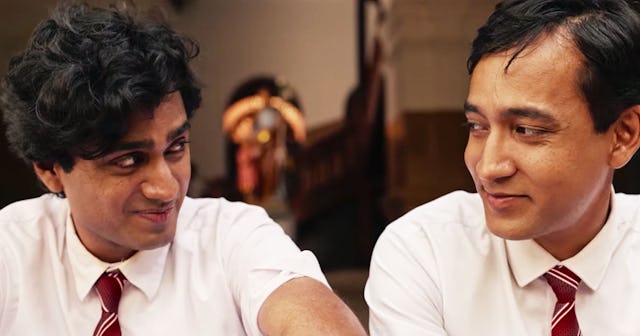We Are More Alike Than Different: Ava DuVernay Teaches Us That With 'Funny Boy'

I’ve only met Ava DuVernay through the lens of her camera and know the genius of her ability to tell the stories of so many who’ve been silenced, shunned, and even murdered for who they are, for fighting to live their lives as they are. In her work, she helps us to understand oppression, makes room for reflection, and has a way of bringing us the truth in the most accessible ways. As a writer, producer, director, and independent film distributor, Ava DuVernay pushes us to open our hearts and minds to the injustices happening in our communities through her craft.
Next month, ARRAY Now, an independent film distribution company founded by Ava DuVernay, will release Funny Boy, a film adaptation by writer and director Deepa Mehta based on the book with the same name by Canadian-Sri Lankan author, Shyam Selvadurai. It gives us an intimate peek into a country and family unlike anything we’ve ever seen, and will air on Netflix on December 10th.
Array Releasing/Jannick Laurent
Selvadurai’s book, published almost 30 years ago, tells the story of both a war-torn country and a young boy, Arjie, who must come to terms with his sexuality as a gay boy — a “funny boy” — growing up in Sri Lanka, a small country not far from India. The film is submitted into the international film category for Canada’s 2021 Oscars submission, but also gives hope to thousands, if not millions, of people worldwide who are LGBTQ.
This is Ava DuVernay’s first LGBTQ film, which gives voice to the gay community at a time when we need it the most (given that our rights here in the United States are under attack). I cannot help but wonder what part of this story, this film, will give so many the courage to live in their skin, and help others to see us as people — equals in this world.
ARRAY HQ/Youtube
My own coming out story is one I met with fear, like so many other queer people. I am grateful to live in the land that I do. Even if today I am fearful that my rights and those of my family may be taken away by this administration, I am still lucky by comparison. Today, 72 countries criminalize homosexuality, and in 11 countries a person who participates in a private same-sex activity can be killed. Those countries are Iran, Northern Nigeria, Saudi Arabia, Somalia, Yemen, Afghanistan, Brunei, Mauritania, Pakistan, Qatar, and the UAE.
For me, and many other LGBTQ youth, movies provide a community that is welcoming. Depictions of our lived experiences, seeing gay and lesbian characters on our televisions, give us hope unlike anything else. Fire, a film also by Deepa Mehta, aired in 1996 and helped me to understand my sexuality, even though I didn’t watch it until my freshman year of college. Even then, it was this film that gave me the language to understand the feelings I felt, at the time, for a female classmate of mine. Fire is also the first Bollywood film to depict a lesbian relationship.
ARRAY HQ/Youtube
In 1996, when this film came out, I was questioning my sexuality; accepting who I was then, and even now, is an ongoing process. According to DoSomething.org, in 2013, 92% of LGBT adults reported that they felt society had become more accepting over the last 10 years. We still have a very long way to go when it comes to accepting each other. I believe that films such as these, and writers and directors such as Ava and Deepa who are willing to tell the stories that move society forward, help us all to become more accepting.
When movies are done well, we can put ourselves into another’s world, even if it’s just for 92 minutes. With the release of Funny Boy on December 10th on Netflix, not only will we have the opportunity to understand a South Asian family in ways we’ve not gotten the chance to before, but we will get to understand one person’s coming out story, and recognize that we all have a story to tell. When the end credits roll, Ava invites us to move forward in this world as participants to help right the wrongs of society, and that means fighting for the rights of all — not just those who are like us.
This article was originally published on